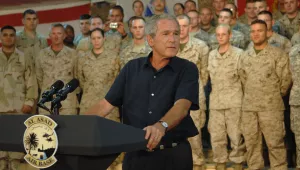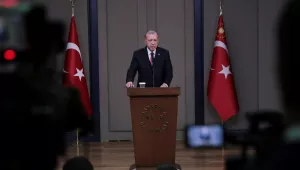BEIRUT -- Looking around the Arab world this week, it is difficult to know what are our real priority challenges, because multiple issues stand out as problems, vulnerabilities, weaknesses or threats. Most of the problems in our region can be traced to local incompetence, or, in the worst cases, criminality and irresponsibility in the seats of power -- though everywhere there is also an element of foreign involvement or manipulation that should not be ignored. The regional picture is not pretty.
The Somali capital Mogadishu is once again ripped apart by vicious street battles, the state-level equivalent of senseless drug wars among poor urban youth in other parts of the world. Somalia is the sad global laboratory of a society without a state, chaos masquerading as statehood.
Bahrain is once again plagued by street demonstrations and security crackdowns, reflecting a total inability of citizens and leaders to engage one another in a sensible political negotiation on the exercise and sharing of power. Bahrain should be a leader in sustainable development and social equity in the region, given its small population and its early emphasis on educating men and women alike.
Iraq remains the most dangerous place in the region today, given its combination of internal stress, rekindled high levels of terror and political violence, the inability of the political class to achieve consensus, and the rampant interference of foreign countries. The destructive ripples that have radiated from Iraq to the region and the world in the form of foreign invasion and interference, terror groups, sectarian fighting and nation-state fragility are unprecedented in the modern era.
Lebanon remains trapped in its continuing dilemma of being both the vanguard of Arab liberalism, cultural creativity, intellectual production, tolerance, and multi-culturalism, on the one hand, and a perpetual proxy battleground for regional and global powers who link up with fierce local fighters, on the other. The best of the Arab and universal human condition is on display in Lebanon every day. But every few weeks or months this is complemented by street fighting, assassinations, political stand-offs or large or small wars.
Yemen is caught in its own whirlwind of national fragility, polarization and low-intensity disintegration, having several times in its modern history split up and united, fought and reconciled, stabilized and plunged into warfare. Now it encapsulates a new destructive dimension in the form of militant Salafists linked with Al-Qaeda, making it another local breeding ground and battleground in the global terror industry.
Palestine becomes stronger and stronger as a national identity in the hearts and minds of its own citizens, while simultaneously becoming more and more fragmented and disjointed politically on the ground. Several different Palestinian leaderships share legitimacy with some of their own people, but none has been able to achieve the more important international legitimacy or credibility and respect in the eyes of Israeli leaders and society.
Sudan chronically displays its own stresses and national deficiencies, including internal fighting on several fronts, the possibility of the south seceding after a referendum, and the ignominy of the president being indicted by the International Criminal Court.
Everywhere else, the Arab world is defined by top-heavy states where small groups of men surrounded by many soldiers make decisions without seriously consulting their fellow citizens. This legacy is firmly supported by major foreign powers, which see "security and stability" as critical priorities in this region -- by which they mean that Israel should remain dominant, that Arab nationalists and Islamists should be fought and diminished, and that security-minded Arab governing elites should rule forever. This translates into a perpetual cycle of mostly disempowered and disenchanted Arab nationals who never get to experience the thrills of true and full citizenship -- participation, accountability, opportunity, and transparency. They share in transforming their states into shopping malls, their identities into categories of security clearances, and their humanity into unthinking automatons who wave the flag on command, cheer on cue, and otherwise restrict the exercise of their rational, emotional and creative human dimensions to subservience, acquiescence, and obedience in the political and social spheres.
Religion helps many such dehumanized Arabs cope with their constraints and discomforts. Emigration is a solution for some. Most people simply adjust to life in modern non-democratic states where the two most prevalent public manifestations of collective norms are in the domains of security and consumerism.
In "secure" Arab societies like Jordan, Kuwait, Syria, Egypt, Tunisia and others like this that do not suffer the chronic violence of Yemen, Palestine, Lebanon and Iraq, the ubiquitous symbols of Arab statehood and citizenship are guns in the hands of police and army personnel, and cell phones in the hands of all other nationals. This is another kind of unstable statehood, one whose vulnerabilities do not appear in the open as they do in those other Arab countries engulfed by fighting.
Rami G. Khouri is Editor-at-large of The Daily Star, and Director of the Issam Fares Institute for Public Policy and International Affairs at the American University of Beirut, in Beirut, Lebanon.
Khouri, Rami. “Guns and Cell Phones.” Agence Global, September 28, 2010





